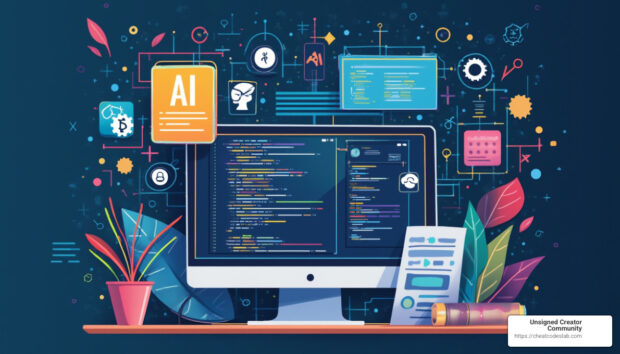
Why Free Machine Learning Courses Are Worth Your Time
Wondering if you can really learn machine learning without spending a dime? The answer is a resounding yes! The landscape of best free online machine learning courses has transformed dramatically, democratizing what was once elite knowledge reserved for university halls and tech giants.
Right now, these five exceptional options stand out from the crowd:
Google Machine Learning Crash Course offers an intensive 15-hour journey packed with over 100 exercises and real-world applications that’ll get your hands dirty with actual ML problems. Meanwhile, the Kaggle Micro-Courses Series lets you learn at your own pace while working with the same datasets used in global competitions. If you’re craving academic rigor, Stanford CS229 delivers university-caliber theoretical foundations with comprehensive lecture materials. For the practically-minded learner, Machine Learning in Python with scikit-learn condenses essential skills into 4 hours of hands-on coding. And if you’re just starting out, Machine Learning for Everybody takes a friendly, code-first approach using Google Colab that won’t overwhelm beginners.
Machine learning isn’t just some abstract technological concept – it’s the invisible force behind your Netflix recommendations, spam filters, and even those self-driving cars you’re seeing more frequently. Mastering these skills can completely transform your career trajectory, whether you’re in tech, marketing, finance, or healthcare.
What’s truly remarkable about these best free online machine learning courses is the global community you’re joining. Millions of learners worldwide are taking the same journey, creating a vibrant ecosystem of knowledge-sharing and collaboration. You’re not just learning in isolation – you’re becoming part of a movement reshaping industries across the globe.
The most beautiful part? You don’t need to mortgage your future with student loans. These free resources offer education comparable to expensive degree programs, complete with hands-on projects that build your portfolio. Many even provide shareable certificates that can give your resume that extra boost when job hunting.
Hey there, I’m digitaljeff, a tech entrepreneur who’s witnessed how insights from these best free online machine learning courses helped brands generate over 1 billion views on social media. After two decades working at the intersection of technology and digital marketing, I’ve seen how these accessible learning paths can transform ordinary creators into digital powerhouses.

Want to explore more about best free online machine learning courses? Check out these valuable resources:
– artificial intelligence certification
– AI tools for beginners
– free ai tutorial
What you’ll learn from this guide
In this guide, we’re diving deep into the best free online machine learning courses available in 2025. I’ve spent countless hours testing these resources (and yes, that included some late-night coding sessions fueled by too much coffee) to create a roadmap that actually makes sense for real people with real learning goals.
Whether you’re completely new to this world or looking to level up existing skills, I’ve organized everything in an easy-to-compare format. You’ll find options ranging from quick crash courses for busy professionals to comprehensive theoretical programs for the deep divers among us – all without spending a single penny.
The beauty of this guide is that it meets you where you are. Complete beginner? I’ve got you. Already know some Python but want to understand neural networks better? There’s a clear path for that too. By the end, you’ll know exactly which free course aligns with your learning style, available time, and career aspirations.
Why Learn Machine Learning in 2025: Skills, Prerequisites & Careers

Remember when machine learning was just something you’d hear about in sci-fi movies? Those days are long gone. Today, machine learning has burst into the mainstream, changing from an academic curiosity into the driving force behind innovations we use daily. And the numbers speak for themselves – machine learning engineers are now earning median salaries of $169,700, with nearly 7,000 job openings across the U.S. alone. That demand isn’t slowing down anytime soon.
As Stanford’s Andrew Ng so eloquently put it, “Machine learning is the science of getting computers to act without being explicitly programmed.” This ability for computers to learn and improve on their own is reshaping everything from how doctors diagnose diseases to how banks detect fraud.
The real beauty of taking best free online machine learning courses is the flexibility they offer. You can build these valuable skills around your existing commitments, whether you’re a full-time student, working professional, or curious mind with a passion for technology. No need to commit to a formal degree program or quit your day job to level up.
Want to explore tools that complement your machine learning journey? Our guide on AI Tools for Beginners is the perfect companion resource.
What is Machine Learning and why it matters
At its heart, machine learning gives computers the ability to learn from data and make decisions with minimal human hand-holding. Unlike traditional programming where you spell out every rule, machine learning algorithms find patterns in data and build models that can make predictions or decisions on their own.
The field branches into several fascinating approaches. In supervised learning, algorithms learn from labeled data to make predictions – like identifying spam emails based on examples. With unsupervised learning, algorithms find hidden patterns in unlabeled data – grouping customers with similar buying habits, for instance. And in reinforcement learning, systems learn through trial and error with rewards and penalties – how robots learn to steer obstacles.
These aren’t just academic concepts. Machine learning is all around us: Netflix recommending your next favorite show, Tesla vehicles navigating complex roads, banks flagging suspicious transactions before fraud happens, and medical tools spotting anomalies in X-rays that human eyes might miss.
As one enthusiastic student from Google’s course shared: “Since 2018, millions of people worldwide have relied on Machine Learning Crash Course to learn how machine learning works, and how machine learning can work for them.” That’s the power of accessible education.
Prerequisites & recommended learning paths
Feeling intimidated about jumping into best free online machine learning courses? Don’t be. While having some foundation helps, many courses are designed for beginners.
Having some Python knowledge will definitely give you a head start. Python has become the go-to language for machine learning, with its readable syntax and powerful libraries like NumPy and pandas making data work much more intuitive.
Some basic math concepts will help things click faster. Understanding how vectors and matrices work (linear algebra), grasping probability concepts (statistics), and knowing what derivatives do (calculus) will illuminate why certain algorithms work the way they do. But don’t worry – many courses introduce these concepts as they go.
The good news? Most quality courses include primers on these topics or point you to resources that fill in the gaps. A typical journey might start with Python basics, move to data analysis with pandas, then tackle an intro ML course before specializing in specific areas that interest you.
For those particularly interested in the coding side of AI, our guide on Artificial Intelligence Coding provides a wealth of practical knowledge to complement your machine learning studies.
Who should enroll & career opportunities
The beauty of best free online machine learning courses is how they’ve democratized this knowledge. The student body is incredibly diverse:
College students supplement their formal education with cutting-edge skills. Software engineers add AI capabilities to their toolkit. Data analysts level up from descriptive to predictive analytics. Healthcare professionals, financial analysts, and marketers apply ML to their specific domains. Entrepreneurs build innovative AI-powered products. And countless curious minds explore this fascinating field just for the joy of learning.
Career-wise, the opportunities are both abundant and lucrative. Machine learning engineers command median salaries of $169,700, with data scientists and AI researchers earning similar compensation. The field offers diverse roles – from ML engineers building production systems to data scientists extracting insights, AI researchers pushing boundaries, robotics engineers creating intelligent machines, and specialists in computer vision or natural language processing.
As Felipe M., who’s been learning since 2018, shared: “To be able to take courses at my own pace and rhythm has been an amazing experience. I can learn whenever it fits my schedule and mood.” This flexibility is what makes these courses so powerful for career changers and busy professionals.
Tips to choose the right free course
With so many best free online machine learning courses available, finding your perfect match requires some thought. Here’s what to consider:
Be clear about your learning goals. Are you more interested in understanding the theory behind algorithms or implementing them in real systems? Some courses lean heavily into mathematical foundations, while others emphasize practical coding and implementation.
Be honest about your current level. Starting with material that’s too advanced can quickly become discouraging. Look for clear labels indicating beginner, intermediate, or advanced content.
Prioritize hands-on projects. Theory is important, but nothing cements learning like working with real datasets to solve actual problems. The best courses include practical exercises that challenge you to apply what you’ve learned.
Look for community support. When you inevitably get stuck (we all do!), having access to active forums or discussion groups can make the difference between frustration and breakthrough.
Consider your available time. Some courses require just a few hours of commitment, while others demand months of consistent study. Be realistic about what fits your schedule.
Reflect on your learning style. Do you thrive with video lectures, or do you prefer interactive notebooks or text-based materials? Different courses cater to different preferences.
As one enthusiastic student noted about the Machine Learning in Python with scikit-learn course: “This is the best introduction to Machine Learning I have EVER seen.” When you find the right fit, the learning experience becomes not just educational but genuinely enjoyable.
Best Free Online Machine Learning Courses (2025 Edition)

Alright, let’s explore the cream of the crop when it comes to best free online machine learning courses available in 2025. I’ve spent countless hours testing these courses myself, and I’m excited to share what makes each one special.
What I love about these selections is that they strike that perfect balance between theory and practice. You won’t just learn abstract concepts—you’ll actually build real models with real data. Many include interactive Jupyter notebooks where you can write code, experiment with datasets, and see immediate results.
The best part? You don’t need to spend a penny to access world-class instruction that can genuinely transform your career prospects. Whether you’re looking to dip your toes in machine learning or dive deep into advanced concepts, there’s something here for everyone.
Ready to start on your machine learning trip? Let’s start with the popular Intro to Machine Learning from Kaggle and explore other gems that might just change your professional trajectory.
Quick comparison of the best free online machine learning courses
Before we dive into the details of each course, here’s a helpful comparison of the best free online machine learning courses to help you find your perfect match:
| Course | Provider | Duration | Difficulty | Programming Required | Certificate | Key Topics |
|---|---|---|---|---|---|---|
| Machine Learning Crash Course | 15 hours | Beginner-Intermediate | Yes (Python) | No | TensorFlow, classification, neural networks, fairness | |
| Kaggle Micro-Courses | Kaggle | 4-8 hours each | Beginner-Intermediate | Yes (Python) | Yes | Decision trees, random forests, feature engineering |
| Machine Learning for Everybody | YouTube/Colab | ~10 hours | Beginner | Yes (Python) | No | KNN, Naive Bayes, regression, clustering |
| Machine Learning with scikit-learn | FUN MOOC | 4 hours | Beginner-Intermediate | Yes (Python) | Yes (paid option) | Pipelines, cross-validation, model evaluation |
| CS229: Machine Learning | Stanford | 20+ hours | Advanced | Optional | No | Algorithms, mathematical foundations, deep learning |
The popularity of these courses speaks volumes—Google’s Machine Learning Crash Course has helped millions of learners since 2018. Kaggle’s bite-sized approach means you can complete individual micro-courses in just a few hours. Stanford’s CS229 lectures come from the same course that helped launch Coursera (talk about prestigious origins!).
I’ve heard countless success stories from these courses. One student described the scikit-learn course as “the best introduction to Machine Learning I have EVER seen,” while Machine Learning for Everybody has earned praise for its code-first approach that gets beginners building models faster than they thought possible.
Google Machine Learning Crash Course
If you’re looking for a comprehensive yet practical introduction to machine learning, Google’s Machine Learning Crash Course (MLCC) stands out among the best free online machine learning courses available. What makes this course special? It was actually designed for Google’s own engineers before being generously shared with the public in 2018.
The course is wonderfully structured into 12 modules that progressively build your knowledge. With approximately 15 hours of content and over 100 exercises, you’ll get plenty of practice implementing what you learn. I particularly love the interactive visualizations—they make abstract concepts like gradient descent feel tangible and intuitive.
Google recently updated the course to include cutting-edge topics like Large Language Models and AutoML, ensuring you’re learning the most current applications of machine learning. The course follows a thoughtful progression:
First, you’ll master fundamental ML concepts and learn how to frame problems. Then, you’ll dive into practical implementation using TensorFlow. Finally, you’ll explore how ML systems work in real-world production environments—knowledge that’s incredibly valuable but often overlooked in academic courses.
As one enthusiastic learner shared, “The interactive visualizations helped me understand gradient descent in a way textbooks never could.” That’s the magic of this course—complex ideas become accessible through thoughtful design and explanation.
While MLCC doesn’t offer a certificate, the hands-on skills you’ll develop are directly applicable to real-world projects—something far more valuable to potential employers than a piece of digital paper.
Ready to learn machine learning from the tech giant itself? Head over to the Machine Learning Crash Course and start your journey today.
Kaggle Micro-Courses Series
When it comes to practical, hands-on learning, Kaggle’s micro-courses series stands tall among the best free online machine learning courses available. What I absolutely adore about Kaggle’s approach is how they’ve broken down complex machine learning concepts into digestible, bite-sized modules.
Think of these micro-courses as delicious tapas for your brain—each one focuses on a specific aspect of machine learning and can be completed in just a few hours. This format is perfect if you’re balancing learning with other responsibilities or if you prefer to master one concept before moving to the next.
The recommended learning path starts with Intro to Machine Learning, where you’ll build your first models and grasp core concepts. From there, you can progress to Intermediate Machine Learning, which tackles practical challenges like handling missing values and implementing random forests. The Feature Engineering course then teaches you to create new features that can dramatically improve your model’s accuracy.
What makes these courses truly special is their seamless integration with real-world datasets and competitions. After completing a course, you can immediately apply what you’ve learned to actual Kaggle competitions—the same ones that professional data scientists participate in. It’s like learning to swim and then immediately joining an amateur swim meet!
Each course comes with interactive Jupyter notebooks, hands-on exercises with immediate feedback, and access to real-world datasets. Plus, you’ll earn a certificate upon completion—a nice little bonus for your portfolio.
The community aspect of Kaggle is another hidden gem. When you inevitably get stuck (we all do!), thousands of fellow learners and experienced data scientists are ready to help through forums and discussions. As one student enthusiastically shared: “Kaggle’s micro-courses gave me the confidence to start building models right away. The immediate application to competition datasets made the learning stick.”
Machine Learning for Everybody (YouTube)
If you’re the type who learns best by doing rather than reading textbooks, “Machine Learning for Everybody” on YouTube might just become your new best friend. This course stands out among the best free online machine learning courses for its refreshingly hands-on, code-first approach.
What makes this course special is how it demystifies machine learning from the very first video. Rather than drowning you in theory, the instructor gets you writing actual code and building simple models in Google Colab notebooks right away. There’s something magical about seeing your first machine learning model work—even if it’s simple—that builds confidence like nothing else.
The course creator has a gift for making complex concepts feel accessible and even fun. You’ll cover essential algorithms like K-Nearest Neighbors, Naive Bayes, and logistic regression, but in a way that feels more like play than work. The instructor clearly explains when and why you’d use different techniques—practical knowledge that’s immediately useful.
As one viewer commented, “This transformed machine learning from a science fiction term into a tangible subject I could actually understand.” That’s precisely what makes this course so valuable—it removes the intimidation factor that keeps many people from exploring machine learning.
The content progresses logically from building your first classifier to exploring more complex topics like clustering and dimensionality reduction. Everything happens in Google Colab notebooks, which means you don’t need to worry about installing software or configuring your computer—just open your browser and start learning.
While this course doesn’t offer a certificate, it provides something potentially more valuable: the confidence to build working machine learning models and a solid foundation for exploring more advanced topics. Sometimes, being able to say “I built that” is worth more than any certificate.
Machine Learning in Python with scikit-learn (FUN MOOC)
If you’re looking for instruction straight from the experts, “Machine Learning in Python with scikit-learn” is a standout among the best free online machine learning courses. What makes this course particularly special? It’s created by the core developers of scikit-learn—the folks who built the most widely used machine learning library in Python.
This course feels like getting a private tour of a famous landmark from the architect who designed it. The instructors don’t just teach you how to use scikit-learn; they share the philosophy behind its design and the best practices that will make you a more effective practitioner.
Where this course truly shines is its focus on the entire machine learning workflow. Many courses teach you about algorithms, but this one shows you how to properly prepare data, select appropriate models, tune hyperparameters, and evaluate performance—the complete toolkit that separates hobbyists from professionals.
With just 4 hours of video content, 50+ interactive quiz questions, and downloadable Jupyter notebooks, the course is remarkably efficient. You can complete it in a focused day of study or spread it out over several weeks.
The course is thoughtfully structured into modules covering the predictive modeling pipeline, model evaluation, hyperparameter tuning, model selection, and various model types including linear models, decision trees, and ensembles.
Students consistently praise its practical focus. As one learner enthusiastically noted: “In one day I’ve learned what I need to get into Machine Learning in Python and scikit-learn.” That kind of efficiency is rare and valuable, especially if you’re eager to start applying machine learning to real problems.
While getting the certificate requires a small fee, all the course content is completely free. For many learners, the practical skills gained are reward enough.
Stanford CS229: Machine Learning
For those with a mathematical bent who crave deep understanding, Stanford’s CS229 stands as the crown jewel among the best free online machine learning courses. Taught by AI pioneer Andrew Ng, this course offers university-level instruction that dives into the mathematical foundations that make machine learning algorithms tick.
I won’t sugarcoat it—CS229 is more challenging than other courses on our list. But that challenge comes with unparalleled rewards. It’s like the difference between learning to follow a recipe and understanding the chemistry that makes cooking work. You’ll emerge with a profound understanding of not just how to implement algorithms, but why they work the way they do.
The course materials—including detailed lecture notes, problem sets, and recorded lectures—are freely available online. What makes CS229 special is its comprehensive coverage of machine learning theory, from the basics of supervised learning to advanced topics in deep learning and reinforcement learning.
The curriculum covers supervised learning (including regression, classification, and neural networks), unsupervised learning (clustering and dimensionality reduction), deep learning fundamentals, generalization and regularization techniques, and an introduction to reinforcement learning and control.
CS229 is particularly valuable if you’re interested in research or need to understand the mathematical underpinnings of machine learning algorithms. As one student eloquently put it, “CS229 gave me the theoretical foundation to understand why models work, not just how to implement them.”
While the course doesn’t offer a certificate for the free version, the depth of knowledge gained is highly respected in technical interviews and research settings. For those with a strong mathematical background—or the determination to build one—CS229 provides an exceptional education in machine learning fundamentals that few other courses can match.
Hands-on experience & certificates in the best free online machine learning courses
One of the most valuable aspects of the best free online machine learning courses is their emphasis on practical, hands-on experience. Building real models with actual datasets does something magical—it transforms abstract concepts into concrete skills and creates portfolio pieces that show potential employers what you can do.
Each course on our list approaches hands-on learning in its own unique way. Google’s Machine Learning Crash Course includes over 100 exercises where you’ll implement concepts using TensorFlow, plus fascinating case studies from Google’s own applications. It’s like peeking behind the curtain at how one of tech’s giants applies these concepts.
Kaggle’s Micro-Courses truly shine when it comes to practical application. Each lesson culminates in exercises using competition datasets, and after completing the courses, you can immediately join Kaggle competitions to test your skills against real-world problems. There’s nothing quite like the thrill of seeing your model climb up a competition leaderboard!
The YouTube-based Machine Learning for Everybody takes a refreshingly direct approach—each concept is immediately implemented in Google Colab notebooks. This immediate application helps cement your understanding in a way that passive learning never could.
Machine Learning in Python with scikit-learn provides downloadable Jupyter notebooks that guide you through implementing a complete machine learning pipeline. You’ll experience the entire workflow from data preprocessing to model evaluation—exactly what you’d do in a professional setting.
Stanford’s CS229 takes a different but equally valuable approach with problem sets that challenge you to implement algorithms from scratch. This deep dive helps you understand their inner workings in a profound way.
As for certificates, several options are available. Kaggle provides free certificates upon completion of each micro-course, while the scikit-learn course offers an optional paid certificate. For courses without formal certificates, you can showcase your learning by building a portfolio of projects.
As Jennifer J., a learner since 2020, enthusiastically shared: “I directly applied the concepts and skills I learned from my courses to an exciting new project at work.” That’s the real certificate—the ability to solve real problems with your new skills.
While certificates can be helpful for your resume, what employers ultimately care about is your ability to solve problems using machine learning. Building and documenting projects that demonstrate these skills often speaks louder than any certificate ever could.
Conclusion & Next Steps

You’ve made it! By exploring the best free online machine learning courses available in 2025, you’ve taken the first step toward mastering one of today’s most transformative technologies. The journey might seem daunting at first, but every expert started exactly where you are now.
Looking back at what we’ve covered, it’s clear that machine learning isn’t just a passing trend—it’s reshaping industries, creating new career paths, and solving problems we once thought impossible. And the best part? You don’t need to spend thousands on formal education to join this revolution. These free courses offer university-quality instruction that’s accessible to anyone with curiosity and determination.
The secret to success in machine learning isn’t just absorbing theory—it’s applying what you learn. The hands-on projects in these courses aren’t just exercises; they’re building blocks for your future portfolio. When a potential employer asks, “What can you do with machine learning?” you’ll have concrete examples to share, not just course certificates.
Your learning journey should be as unique as you are. Some of you might thrive in Google’s structured approach, while others might prefer Kaggle’s competitive environment or Stanford’s theoretical depth. There’s no single “right” path—the best one is the one you’ll actually complete.

So where do you go from here? Think of your machine learning education as a living thing that needs constant nourishment. Continue expanding your knowledge by exploring specialized areas like natural language processing or computer vision. Build meaningful projects that solve real problems—they’ll teach you more than any course ever could. Connect with other learners through platforms like Kaggle or GitHub; the machine learning community is incredibly supportive and often the best source of practical advice.
Remember to stay curious and keep learning. Machine learning evolves rapidly, and today’s cutting-edge techniques might be tomorrow’s basics. Follow research papers, blogs, and conferences to stay current—but don’t feel overwhelmed. Focus on understanding core principles first, and the latest trends will make more sense.
Here at Unsigned Creator Community, we’re cheering you on every step of the way. We’ve created additional resources to support your AI learning journey, including our guide to Artificial Intelligence Free: Best Free AI Tools & Resources that perfectly complements the machine learning courses you’ve finded today.
Learning machine learning is more marathon than sprint. There will be days when algorithms seem impossible to understand and your code refuses to work. That’s normal! Be patient with yourself, celebrate small victories, and remember that every expert once struggled with the same concepts you’re tackling now.
For more AI resources to fuel your learning trip, explore our comprehensive AI pillar resources. We can’t wait to see what amazing things you’ll create with your new machine learning skills!















